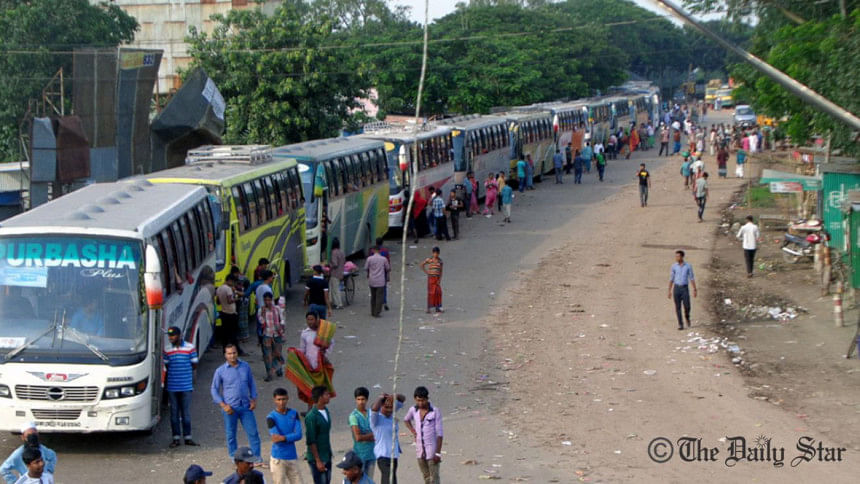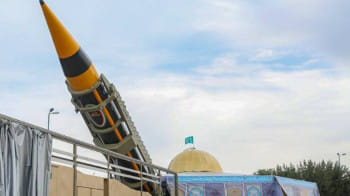Highway robbery

Highways are the major arteries of our economic backbone. Since the railway network was never really developed to transport bulk goods, we are inordinately dependent on highways to connect the capital city with the rest of the country to get goods transported. The present government has been investing heavily on infrastructure, which is good news. The bad news is that the quality of our roads and highways is seriously questionable, which means hours wasted navigating badly maintained highways, driving up costs for traders and producers and hassle for passengers who must travel between districts.
According to a report published in Prothom Alo on March 3, we have spent Tk 40,000 crores on important road links and bridges over the last 8 years, but the principal highways are in a state of disarray. According to World Economic Forum 2017 data, Bangladesh has the second worst-maintained road links in the region, only Nepal is worse off than us. National highways constitute 3,438km (out of a total of 18,210km of important district road links) and their situation is hardly commendable. What we are seeing today is of course a better situation than yesteryears. Back in 2012, 38 percent of these highways were ill maintained. In the previous year, the figure of badly maintained highways was 55 percent.
Dhaka, the capital city remains the principal hub of economic activities in the country. Hence, when highways coming into Dhaka or going out of Dhaka are in a state of disrepair, we have a major problem on our hands. We understand that six of the major road routes connecting Dhaka have 150 km of hardly navigable highways. This results in slowing traffic to a snail's pace, increasing travel time by many hours. The biggest problem remains the Dhaka-Chittagong highway since the readymade garments (RMG) sector is primarily concentrated in and around Dhaka. The bulk of RMG goods have to be transported to Chittagong for shipment. The slow traffic increases both cost of doing business and shortens lead times for factories, adding yet another headache for producers. Importers face the same music since Chittagong port is our biggest port.
The above is just one example of the troubles on the highways. Potholes, ditches, washed away asphalt, etc., end in a dilapidated road communication network and despite repeated assurances from policymakers, nothing much has changed over the years about doing something about maintaining the minimum standard for highways. We have seen the enthusiasm in awarding contracts to companies that have either been found lacking in constructing such major projects on time or witnessed how the slow pace of land acquisition has set back construction timelines by years.
But more worrisome is that once such highways have been completed, they have fallen apart much faster than expected. When that happens, we find that more often than not, maintenance budgets for keeping these major arteries in good condition have always fallen short of what is needed. The refusal to fund major repair is not without reason. Given that we have a chequered past (and present) in monitoring the quality of our public works and the over-enthusiasm of certain departments to engage in piecemeal repair work which does not last more than a month, let alone a season, one cannot but agree that pouring money into a bottomless pit is terrible value for money. But is anyone counting the cost? It does not seem so, otherwise some of these bad practices would have been rectified over the last seven or eight years.
The arguments set forth by the anti-graft body ACC which has recently sent a letter to the Cabinet Division with 21 recommendations point out several irregularities in the tendering process even after the introduction of the electronic system (e-tendering). A report in this paper on March 5 highlights the difficulty in proving corruption allegations as the matters are technical and require evaluation. Allegations have surfaced that there is collusion among influential persons, consultants and government officials in obtaining a contract. Similarly, allegations have surfaced on the usage of sub-standard bricks in road construction. One of the recommendations by ACC is the formation of a monitoring committee with BUET teachers, civil society members, road experts and honest engineers of RHD to look after these matters. If these recommendations are heeded, then we can, in the foreseeable future get value for our money in road communication infrastructure development.
The national exchequer is spending billions of taka every year for much-needed infrastructure development and we are basically throwing away billions and setting back completion dates, not months but years. The government's grand vision to make us a middle-income country will not bear fruit if we continue to treat the matter of infrastructure development so lightly. It is high time we took cognisance of the fact that it is time to tackle graft seriously and put in place checks-and-balances to hold faulty parties accountable.
Syed Mansur Hashim is Assistant Editor, The Daily Star.





Comments